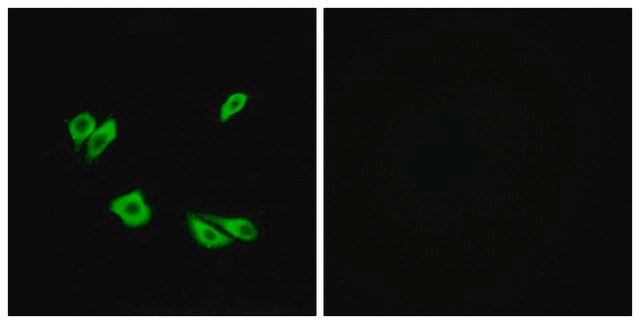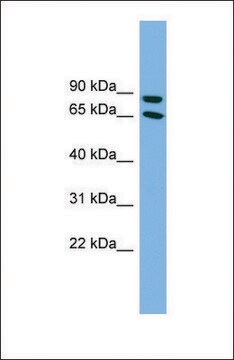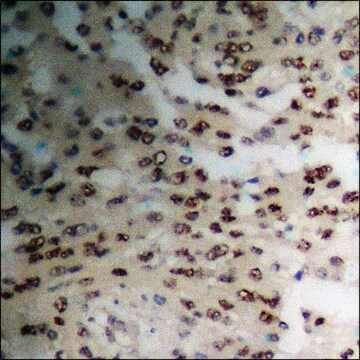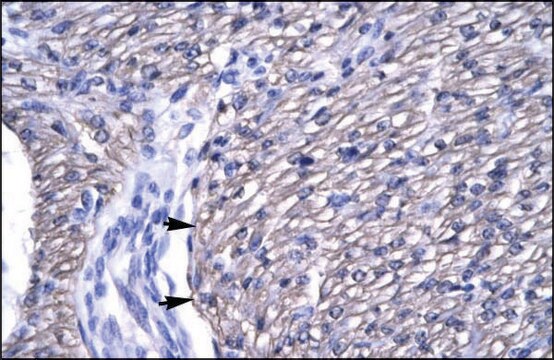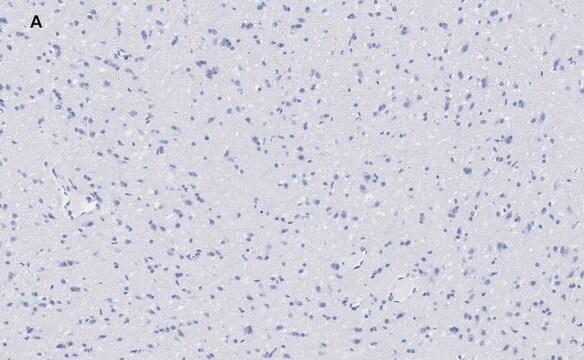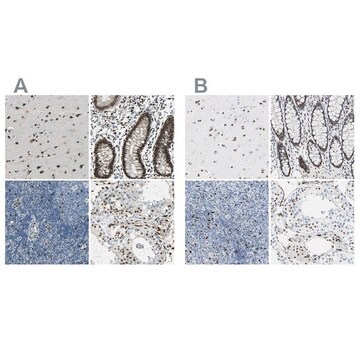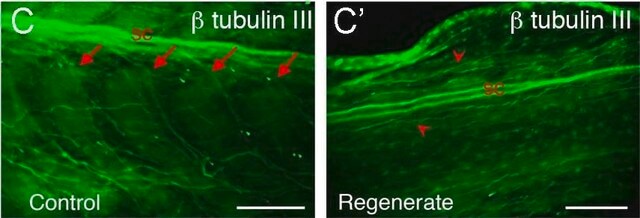AB5840-I
Anti-Dab1
from rabbit
Synonym(e):
Disabled homolog 1
About This Item
WB
western blot: suitable
Empfohlene Produkte
Biologische Quelle
rabbit
Qualitätsniveau
Antikörperform
affinity isolated antibody
Antikörper-Produkttyp
primary antibodies
Klon
polyclonal
Speziesreaktivität
mouse
Verpackung
antibody small pack of 25 μg
Methode(n)
immunohistochemistry: suitable (paraffin)
western blot: suitable
NCBI-Hinterlegungsnummer
UniProt-Hinterlegungsnummer
Versandbedingung
ambient
Posttranslationale Modifikation Target
unmodified
Angaben zum Gen
mouse ... Dab1(13131)
Allgemeine Beschreibung
Spezifität
Immunogen
Anwendung
Neurowissenschaft
Qualität
Western Blotting Analysis: 2 µg/mL of this antibody detected Dab1 in 10 µg of mouse brain tissue lysate.
Zielbeschreibung
Physikalische Form
Lagerung und Haltbarkeit
Sonstige Hinweise
Haftungsausschluss
Sie haben nicht das passende Produkt gefunden?
Probieren Sie unser Produkt-Auswahlhilfe. aus.
Analysenzertifikate (COA)
Suchen Sie nach Analysenzertifikate (COA), indem Sie die Lot-/Chargennummer des Produkts eingeben. Lot- und Chargennummern sind auf dem Produktetikett hinter den Wörtern ‘Lot’ oder ‘Batch’ (Lot oder Charge) zu finden.
Besitzen Sie dieses Produkt bereits?
In der Dokumentenbibliothek finden Sie die Dokumentation zu den Produkten, die Sie kürzlich erworben haben.
Unser Team von Wissenschaftlern verfügt über Erfahrung in allen Forschungsbereichen einschließlich Life Science, Materialwissenschaften, chemischer Synthese, Chromatographie, Analytik und vielen mehr..
Setzen Sie sich mit dem technischen Dienst in Verbindung.